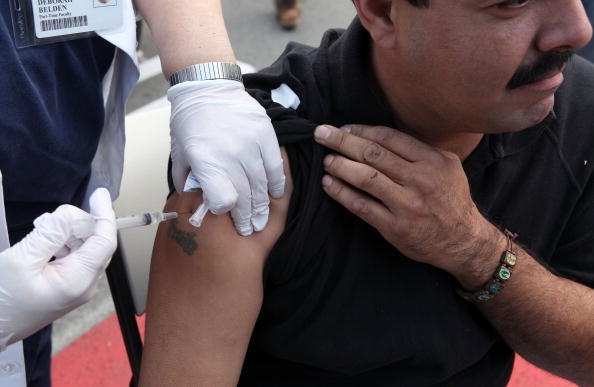-
Tips for becoming a good boxer - November 6, 2020
-
7 expert tips for making your hens night a memorable one - November 6, 2020
-
5 reasons to host your Christmas party on a cruise boat - November 6, 2020
-
What to do when you’re charged with a crime - November 6, 2020
-
Should you get one or multiple dogs? Here’s all you need to know - November 3, 2020
-
A Guide: How to Build Your Very Own Magic Mirror - February 14, 2019
-
Our Top Inspirational Baseball Stars - November 24, 2018
-
Five Tech Tools That Will Help You Turn Your Blog into a Business - November 24, 2018
-
How to Indulge on Vacation without Expanding Your Waist - November 9, 2018
-
5 Strategies for Businesses to Appeal to Today’s Increasingly Mobile-Crazed Customers - November 9, 2018
Flu Vaccine May Lower Hospitalization Rates of Patients with Type 2 Diabetes
“Not only might it help reduce serious illness such as stroke – and possibly heart attack – in high-risk individuals, but it may also reduce the risk of death in the flu season”.
Advertisement
The seasonal influenza vaccine may significantly reduce mortality for patients with type 2 diabetes, as well as hospitalizations for stroke and cardiovascular and pulmonary issues, according to a study published online July 25 in CMAJ, the journal of the Canadian Medical Association. With the result of their findings, researchers are urging patients with type 2 diabetes and other chronic conditions to have a regular vaccination for flu to prevent potential hospital admissions.
Vamos and his team had examined seven years (2003/2004- 2009/2010) of data among approximately 124, 503 people in Britain with type 2 diabetes, to analyze how flu vaccines may influence the probability of hospitalization and death for diabetics. After adjusting for the fact that those who got vaccines were older and had more comorbidities, they found that getting the vaccine was associated with lower administration rates for stroke, with an incidence rate ratio (IRR) of 0.77; for heart failure, with an IRR of 0.78; and pneumonia or influenza, with an IRR of 0.85. All-cause death was also significantly reduced (IRR, 0.76; 95 percent CI, 0.65 to 0.83). “Cardiologists, internists, and endocrinologists should ensure that their patients are vaccinated for flu before its season begins”. In addition, vaccination was associated with reductions in all of the observed outcomes during the influenza season.
Influenza vaccine is largely underused among people with chronic diseases such as diabetes, Vamos told heartwire from Medscape. People with type 2 diabetes normally have a higher risk of cardiovascular problems, the researchers noted.
Advertisement
Before flu season starts, cardiologists, internists, and endocrinologists should ask their patients if they have received a flu shot, and if not, should offer it at their local sites. Moreover, “we shouldn’t be satisfied with just a 65% vaccination rate”, he said.





























